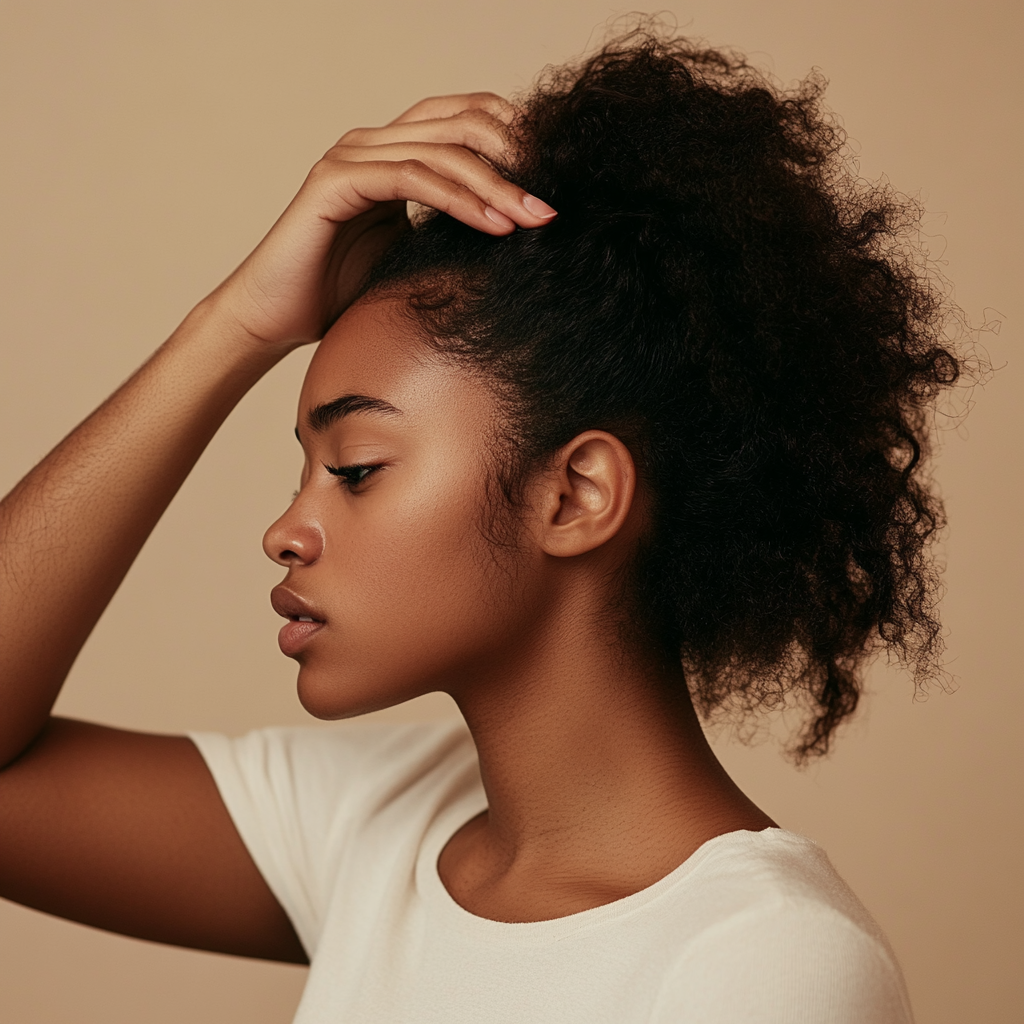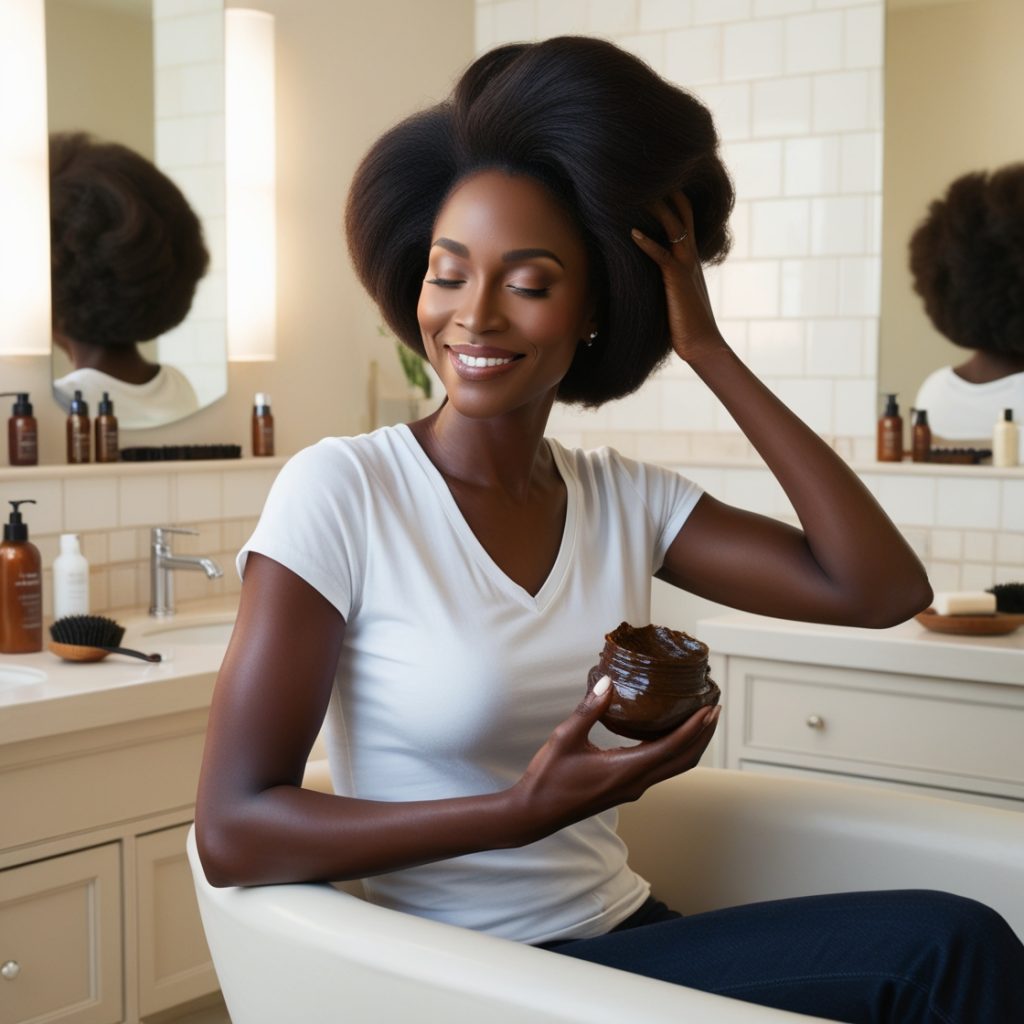
Empowering Solutions
Hair is more than just a part of our physical appearance; it is a significant aspect of our identity and heritage. For Black women, hair represents culture, tradition, and personal expression. However, hair loss and thinning are common concerns that can be both distressing and challenging. This article explores the causes, preventive measures, and treatments for hair loss and thinning, offering practical advice and inspiration for Black women to reclaim their crowning glory.
Understanding Hair Loss and Thinning
Hair loss and thinning can manifest in various forms, from mild thinning to significant bald patches. For Black women, the unique structure of our hair – coily, kinky, and curly textures – requires specific care. When not properly managed, these textures can become prone to breakage, leading to hair loss and thinning.
Causes of Hair Loss and Thinning
- Traction Alopecia: This form of hair loss results from continuous pulling on the hair, often due to tight hairstyles like braids, weaves, and ponytails.
- Chemical Damage: Frequent use of chemical relaxers, dyes, and other harsh treatments can weaken hair strands, leading to breakage and thinning.
- Heat Damage: Overuse of heat styling tools such as flat irons and blow dryers can cause hair to become brittle and break.
- Nutritional Deficiencies: Lack of essential nutrients, including vitamins and minerals, can affect hair health and growth.
- Hormonal Changes: Conditions such as pregnancy, menopause, and thyroid issues can disrupt the normal hair growth cycle.
- Stress and Illness: Physical and emotional stress, as well as certain medical conditions like alopecia areata and scalp infections, can contribute to hair loss and thinning.
Preventive Measures for Hair Loss and Thinning
Protective Hairstyles
Choosing hairstyles that reduce tension on the hair can significantly minimize the risk of traction alopecia. Opt for loose braids, twists, and natural hairstyles that do not pull on the scalp. Protective styles should also allow the hair to rest and recover.
Gentle Hair Care Practices
- Cleansing: Use sulfate-free shampoos and conditioners to maintain the hair’s natural oils. Washing hair regularly helps to keep the scalp healthy.
- Moisturizing: Black hair tends to be dry, so it’s essential to keep it hydrated. Use leave-in conditioners, natural oils like coconut oil, and deep conditioning treatments to retain moisture.
- Detangling: Use a wide-tooth comb or fingers to gently detangle hair, starting from the ends and working your way up to avoid breakage.
Limiting Chemical and Heat Exposure
Reducing the frequency of chemical treatments and heat styling can protect hair from damage. Embrace natural hair textures and use heatless styling methods to achieve desired looks. When using heat, always apply a heat protectant.
Balanced Diet and Supplements
A diet rich in vitamins and minerals supports healthy hair growth. Incorporate foods high in iron, zinc, vitamin D, and biotin, such as leafy greens, nuts, eggs, and fish. Supplements can also be beneficial if dietary intake is insufficient.
Effective Treatments for Hair Loss and Thinning
Topical Treatments
- Minoxidil: This over-the-counter treatment is widely used for hair regrowth. It can be applied directly to the scalp to stimulate hair follicles.
- Essential Oils: Oils like rosemary, peppermint, and lavender have been shown to promote hair growth. They can be massaged into the scalp to improve circulation and strengthen hair roots.
Medical Treatments
- Platelet-Rich Plasma (PRP) Therapy: This treatment involves injecting the patient’s own platelet-rich plasma into the scalp to stimulate hair growth.
- Corticosteroid Injections: Used for conditions like alopecia areata, these injections can reduce inflammation and promote hair regrowth.
- Hair Transplant Surgery: In severe cases of hair loss, surgical options such as hair transplants can restore a fuller appearance.

Natural Remedies
- Aloe Vera**: Known for its soothing properties, aloe vera can reduce scalp inflammation and promote healthy hair growth.
- Onion Juice**: Rich in sulfur, onion juice can improve hair strength and growth when applied to the scalp.
- Fenugreek Seeds**: These seeds can be soaked and ground into a paste to apply to the scalp, enhancing hair thickness and health.
Inspirational Stories: Embracing Hair Journeys
Many Black women have shared their journeys of overcoming hair loss and thinning, offering hope and motivation. Embracing natural hair and learning to care for it can transform challenges into empowering experiences. Celebrities and influencers have also contributed to breaking stigmas and promoting acceptance of natural beauty.
- Jada Pinkett Smith: Jada has been open about her struggle with alopecia and continues to inspire many with her resilience and advocacy.
- Viola Davis: Viola has shared her experiences with hair loss and the importance of self-acceptance, empowering women to embrace their natural beauty.
Conclusion: Embracing Your Crown
Hair loss and thinning can be daunting, but with the right knowledge and care, Black women can manage and overcome these challenges. Understanding the causes, adopting preventive measures, and exploring effective treatments are crucial steps in maintaining healthy hair.
Preventive measures such as protective hairstyles, gentle hair care practices, limiting chemical and heat exposure, and maintaining a balanced diet were highlighted. Effective treatments, both topical and medical, as well as natural remedies, were outlined to offer comprehensive solutions. Inspirational stories from celebrities provided a motivational boost, encouraging women to embrace their natural beauty.
Empowering yourself with knowledge and embracing your natural hair journey can lead to healthier, more vibrant hair. Remember, your hair is a symbol of your heritage and beauty – take pride in caring for it and celebrating your unique crown.


